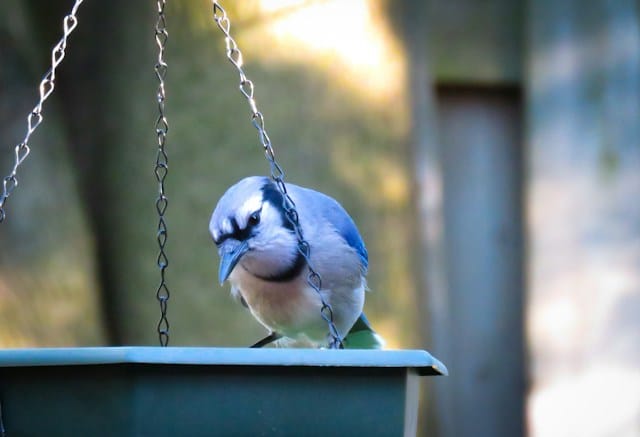How can you tell if your bird is bored?

Birds are intelligent and social creatures that require stimulation and interaction to thrive. In the wild, they spend their time foraging, socializing, and exploring, activities that keep their minds and bodies active. However, when these vibrant creatures become pets, their environment changes drastically. The confinement of a cage and the lack of natural stimuli can lead to boredom, which is detrimental to their health and wellbeing. Understanding the signs of boredom and knowing how to enrich your bird’s life are essential aspects of responsible pet ownership.
It’s crucial to recognize that birds differ from one another; a budgie might display different signs of boredom compared to a parrot. Moreover, what entertains one bird might not be as engaging to another. As bird owners, it’s your responsibility to observe and learn about the unique needs and preferences of your feathered friends.
A lire en complément : How to train a dog not to bark at guests?
In this article, we’ll explore the signs of boredom in birds and provide strategies to keep them engaged and happy. This way, you can ensure your bird is not only healthy but also content in its environment.
Recognizing the Signs of Boredom in Birds
Observing your bird’s daily activities and behavior is key to identifying if they might be experiencing boredom. Signs of boredom can manifest in various forms, and being mindful of these can help you take proactive steps to enrich their lives.
Avez-vous vu cela : What should you do if your pet eats something toxic?
Body Language and Behavior
Birds convey a lot through their body language. A bored bird may display a lack of energy, sitting listlessly on their perch without showing interest in their surroundings. You might notice repetitive behaviors, like swinging their head or pacing back and forth. In more severe cases, birds may resort to feather plucking, a harmful behavior indicative of stress and boredom.
Interaction with Toys and Environment
Bird toys are essential for mental stimulation, but a bored bird might ignore these and become indifferent to their environment. If your bird’s toys remain untouched or if your pet bird seems disinterested in playing or exploring, it’s a clear sign that the activities provided are not stimulating enough.
Vocalizations
Birds are naturally vocal creatures, but changes in their calling patterns could suggest boredom. A bird that is less chatty than usual or, conversely, one that vocalizes excessively and loudly might be trying to communicate their dissatisfaction with their current situation.
Eating Habits
Just like humans, birds can exhibit changes in eating habits when they are not stimulated. A bored bird might eat less or start to exhibit picky behavior regarding its food and water.
By being attentive to these signs, you can start to understand when your bird is not as engaged as it should be and take the necessary steps to alleviate their boredom.
Enriching Your Bird’s Environment
To prevent boredom, it’s essential to create a stimulating environment that mimics the natural behaviors of birds in the wild. There are several ways to enrich your bird’s living space, ensuring they remain active and entertained.
Variety of Toys
Introduce a variety of bird toys into your bird’s cage and rotate them regularly to maintain interest. Toys that encourage foraging, problem-solving, and physical activity can be especially beneficial. Make sure the toys are appropriate for the size of your bird; what works for small birds like a budgie may not be suitable for larger parrots.
Perches and Space
Adequate space and a variety of perches are critical for your bird’s wellbeing. Different perch sizes and materials can simulate the varying branches found in nature, providing exercise for your bird’s feet and preventing issues like arthritis.
Interactive Playtime
Dedicate time each day to interact with your bird outside of its cage. This can be as simple as allowing them to explore a bird-safe room or engaging them in play with toys. Remember, birds are social animals, and your interaction is vital for their well-being.
Training and Mental Challenges
Teaching your bird new tricks or commands can provide mental stimulation. Positive reinforcement training not only keeps your bird’s mind sharp but also strengthens the bond between you and your pet.
By incorporating these elements into your bird’s life, you can significantly reduce the risk of boredom and ensure a healthy, happy companion.
Understanding Your Bird’s Dietary Needs
A well-balanced diet is fundamental to your bird’s health. Birds require a variety of nutrients to maintain their energy levels and prevent boredom associated with a monotonous diet.
Variety in Food
In the wild, birds eat a diverse range of foods, and your pet bird should have a similar experience. A mixture of seeds, fruits, vegetables, and appropriate pellets can provide the nutritional variety they need. Introducing new foods not only offers different nutrients but can also be an exciting change for your bird.
Foraging as Enrichment
Incorporating foraging opportunities into your bird’s routine can mimic the natural behavior of searching for food and keep them engaged for longer periods. Food puzzles or hiding treats around the cage can encourage this behavior.
Monitoring Food Intake
Pay close attention to your bird’s eating habits. If you notice any changes, this may be an indicator of boredom or other health issues. Consult with a veterinarian if you have concerns about your bird’s diet or appetite.
By understanding and catering to your bird’s dietary needs, you provide them with not just sustenance, but also entertainment and satisfaction.
Addressing Behavioral Issues
Behavioral issues in birds are often a symptom of underlying problems such as boredom or stress. Addressing these issues requires patience and an understanding of bird psychology.
Recognizing Stress and Boredom
Signs of stress and boredom can overlap, but both can lead to behavioral issues. Feather plucking, aggression, and self-mutilation are serious signs that your bird is unhappy and that immediate action is required.
Environmental Changes
Sometimes, a simple change in the environment can alleviate your bird’s distress. This could involve moving the cage to a different location, changing the setup inside the cage, or increasing the amount of natural light your bird receives.
Professional Help
If your bird’s behavior becomes concerning, don’t hesitate to seek advice from a vet or a bird behaviorist. They can provide guidance tailored to your bird’s specific needs and help you create a plan to improve their quality of life.
By addressing behavioral issues promptly, you can ensure that your bird remains both physically and mentally sound.
Conclusion
A bird’s complicated needs make them unique and delightful pets, but these same needs can lead to boredom if not properly addressed. Recognizing the signs of boredom in your feathered friend is crucial in providing the care that they deserve. Keep an eye out for changes in behavior, interaction with toys, vocalizations, and eating habits, as these can be indicators that your bird is not as mentally stimulated as it should be.
Enriching your bird’s environment with a variety of toys, providing ample space and diverse perches, engaging in interactive playtime, and offering a varied diet are all ways to combat boredom. If behavioral issues arise, it’s important to understand the potential causes and seek professional advice if necessary.
Always remember, a happy bird is an active and engaged bird. By being attentive and proactive in your care, you can prevent boredom and ensure a fulfilling life for your avian companion. Keep your bird’s wellbeing at the forefront of your mind, and you’ll find your relationship with your pet bird to be a rewarding and lifelong journey.
